A Bug at Social Security Admin Has Been Rerouting Phone Calls to Random Offices

The agency initially denied there was an issue.


It's now clear that Apple plans to survive Donald Trump's trade war by playing to the president's ego.
On Wednesday, Trump announced that Apple would be exempt from a threatened 100 percent tariff on semiconductors that could have driven up the cost of iPhones globally, Reuters reported. In an apparent effort to secure this exemption, Apple promised to increase its total investment commitment in the US by $100 billion, while also gifting Trump a one-of-a-kind statue that Apple CEO Tim Cook had engraved with Trump's name.
It serves as a bizarre love letter to Trump's push to bring tech manufacturing into the US, despite Apple resisting that push for its most popular product.
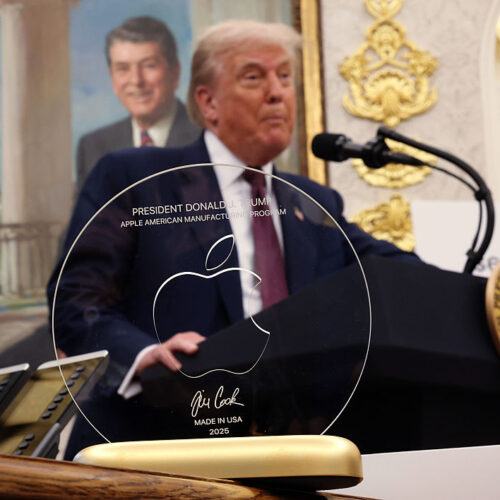
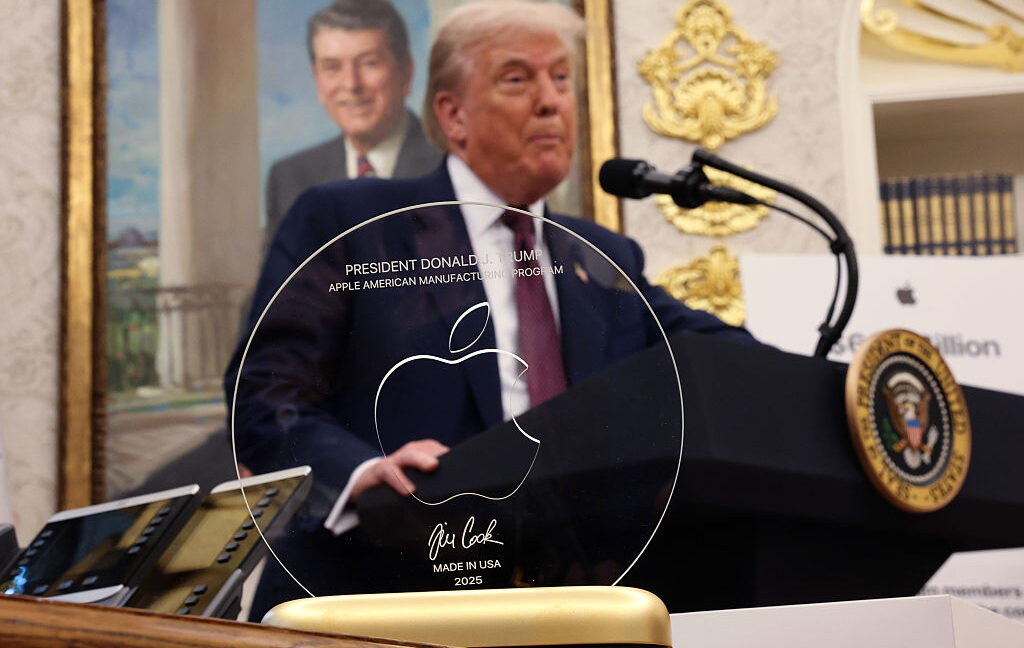
© Win McNamee / Staff | Getty Images News
Donald Trump has called for the newly appointed chief executive of Intel, Lip-Bu Tan, to resign, alleging that the semiconductor industry veteran is “highly conflicted.”
“The CEO of INTEL is highly CONFLICTED and must resign, immediately,” Trump said in his post on his Truth Social website on Thursday. “There is no other solution to this problem.”
The US president’s post did not provide details of Tan’s alleged conflicts of interest. Trump’s broadside follows a letter from Republican Senator Tom Cotton to the US chipmaker’s board chair this week expressing “concern about the security and integrity of Intel’s operations” and Tan’s ties to China.
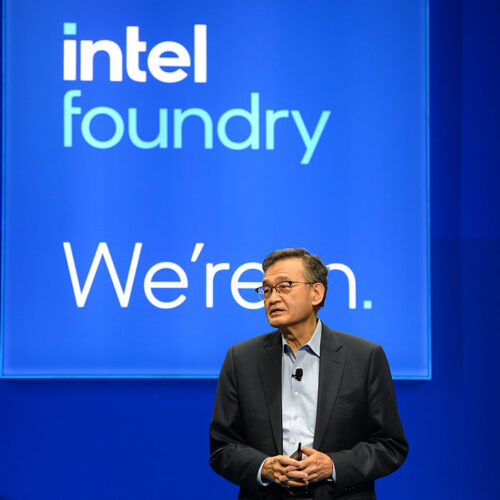
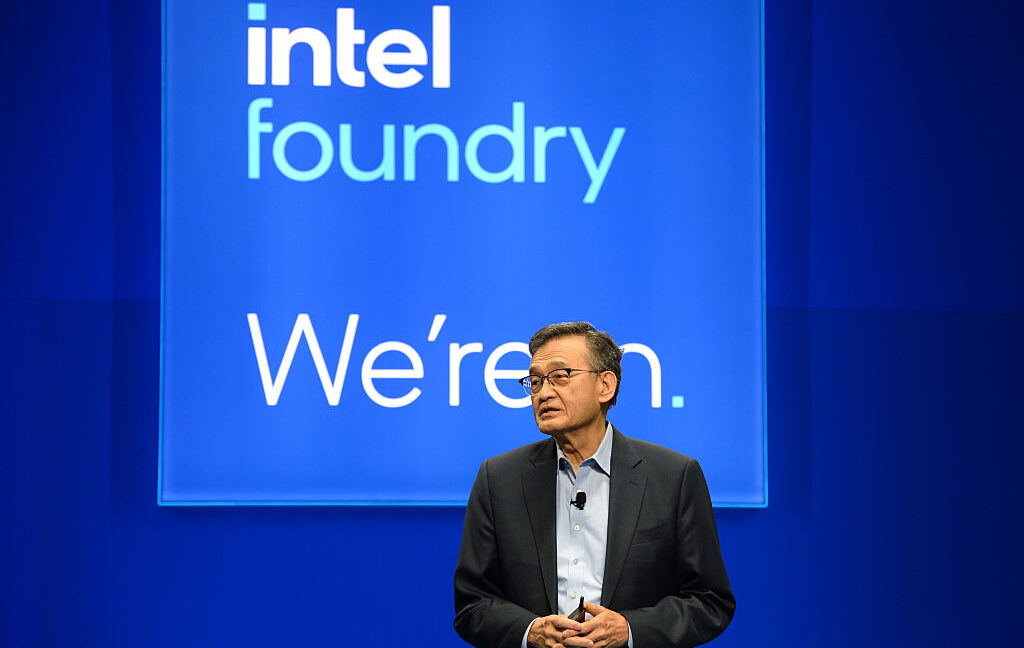
© picture alliance/Getty





Despite the protests of millions of Americans, the Corporation for Public Broadcasting (CPB) announced it will be winding down its operations after the White House deemed NPR and PBS a "grift" and pushed for a Senate vote that eliminated its entire budget.
The vote rescinded $1.1 billion that Congress had allocated to CPB to fund public broadcasting for fiscal years 2026 and 2027. In a press release, CPB explained that the cuts "excluded funding for CPB for the first time in more than five decades." CPB president and CEO Patricia Harrison said the corporation had no choice but to prepare to shut down.
"Despite the extraordinary efforts of millions of Americans who called, wrote, and petitioned Congress to preserve federal funding for CPB, we now face the difficult reality of closing our operations," Harrison said.
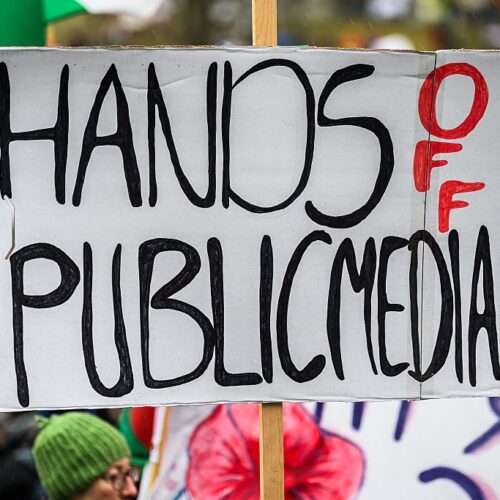
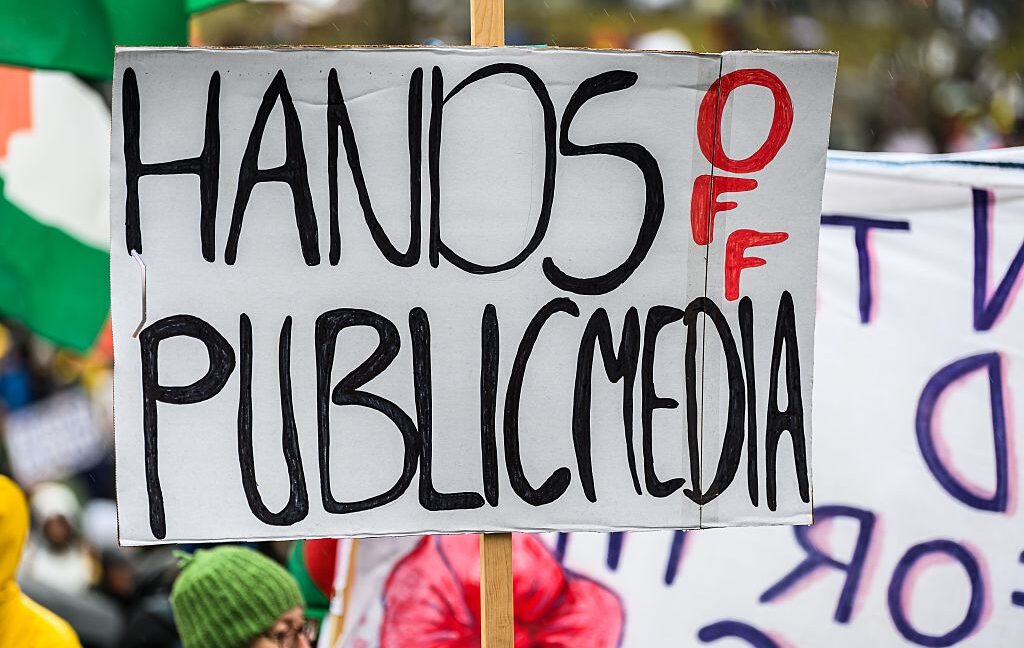
© UCG / Contributor | Universal Images Group



The Federal Communications Commission has approved Skydance's $8 billion acquisition of Paramount, which owns CBS.
But the agency's approval drew fiery dissent from the only Democratic commissioner, Anna Gomez, after requiring written commitments from Skydance that allow the government to influence editorial decisions at CBS. Gomez accused the FCC of "imposing never-before-seen controls over newsroom decisions and editorial judgment, in direct violation of the First Amendment and the law."
Under the agreement, FCC Chairman Brendan Carr explained that Skydance has given assurances that all of the new company’s programming will embody "a diversity of viewpoints from across the political and ideological spectrum." Carr claimed that the requirements were necessary to restore Americans' trust in mainstream media, backing conservatives' claims that media is biased against Trump and appointing an ombudsman for two years to ensure that CBS's reporting "will be fair, unbiased, and fact-based." Any complaints of bias that the ombudsman receives will be reviewed by the president of New Paramount, the FCC confirmed.
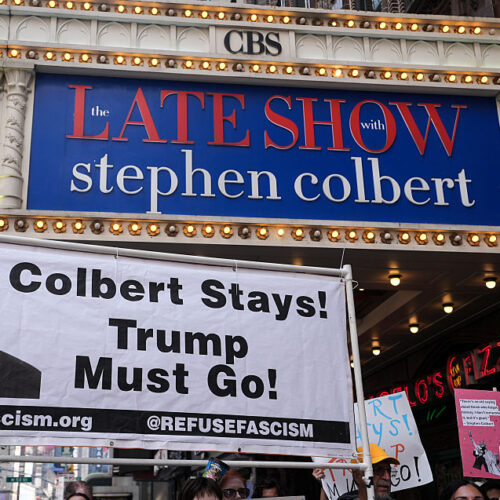
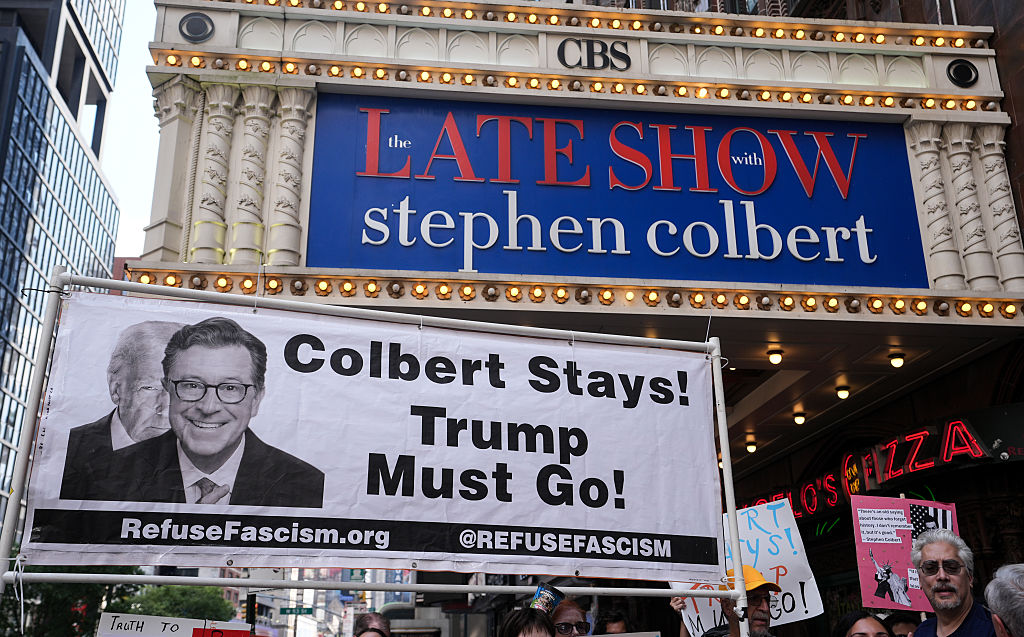
© Anadolu / Contributor | Anadolu
Donald Trump vowed to save TikTok before taking office, claiming only he could make a deal to keep the app operational in the US despite national security concerns.
But then, he put Vice President JD Vance in charge of the deal, and after months of negotiations, the US still doesn't seem to have found terms for a sale that the Chinese government is willing to approve. Now, Trump Commerce Secretary Howard Lutnick has confirmed that if China won't approve the latest version of the deal—which could result in a buggy version of TikTok made just for the US—the administration is willing to shut down TikTok. And soon.
On Thursday, Lutnick told CNBC that TikTok would stop operating in the US if China and TikTok owner ByteDance won't sell the app to buyers that Trump lined up, along with control over TikTok's algorithm.
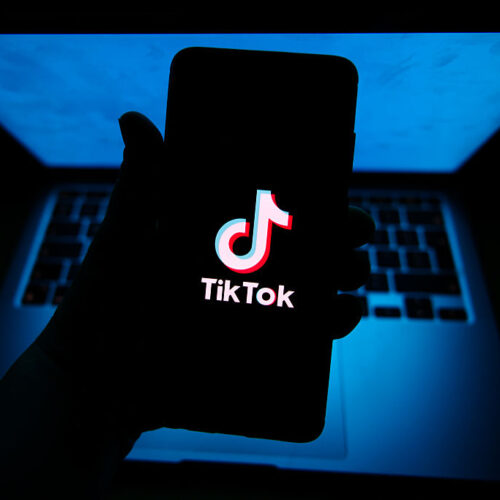
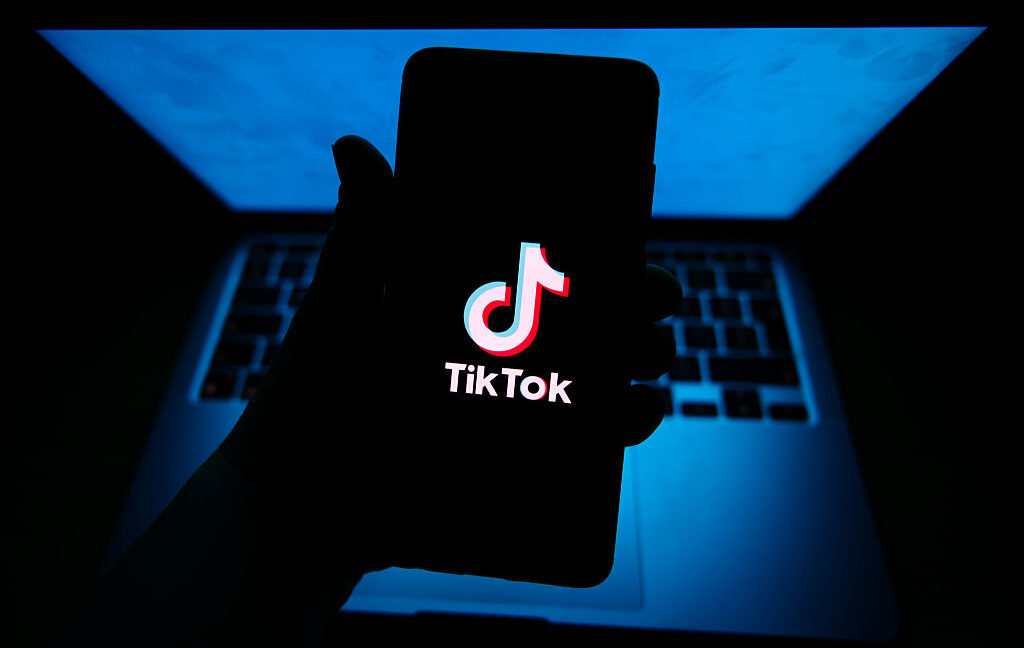
© NurPhoto / Contributor | NurPhoto
The CEOs of every major artificial intelligence company received letters Wednesday urging them to fight Donald Trump's anti-woke AI order.
Trump's executive order requires any AI company hoping to contract with the federal government to jump through two hoops to win funding. First, they must prove their AI systems are "truth-seeking"—with outputs based on "historical accuracy, scientific inquiry, and objectivity" or else acknowledge when facts are uncertain. Second, they must train AI models to be "neutral," which is vaguely defined as not favoring DEI (diversity, equity, and inclusion), "dogmas," or otherwise being "intentionally encoded" to produce "partisan or ideological judgments" in outputs "unless those judgments are prompted by or otherwise readily accessible to the end user."
Announcing the order in a speech, Trump said that the US winning the AI race depended on removing allegedly liberal biases, proclaiming that "once and for all, we are getting rid of woke."
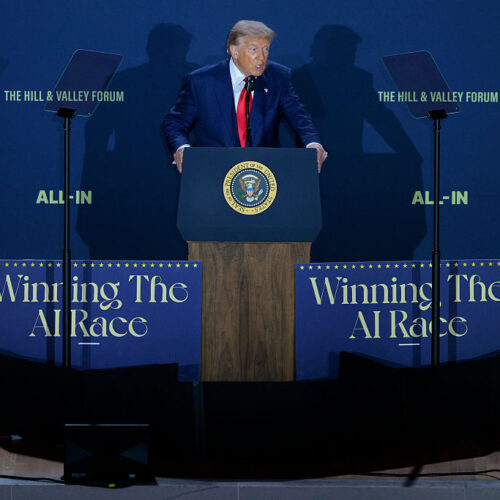
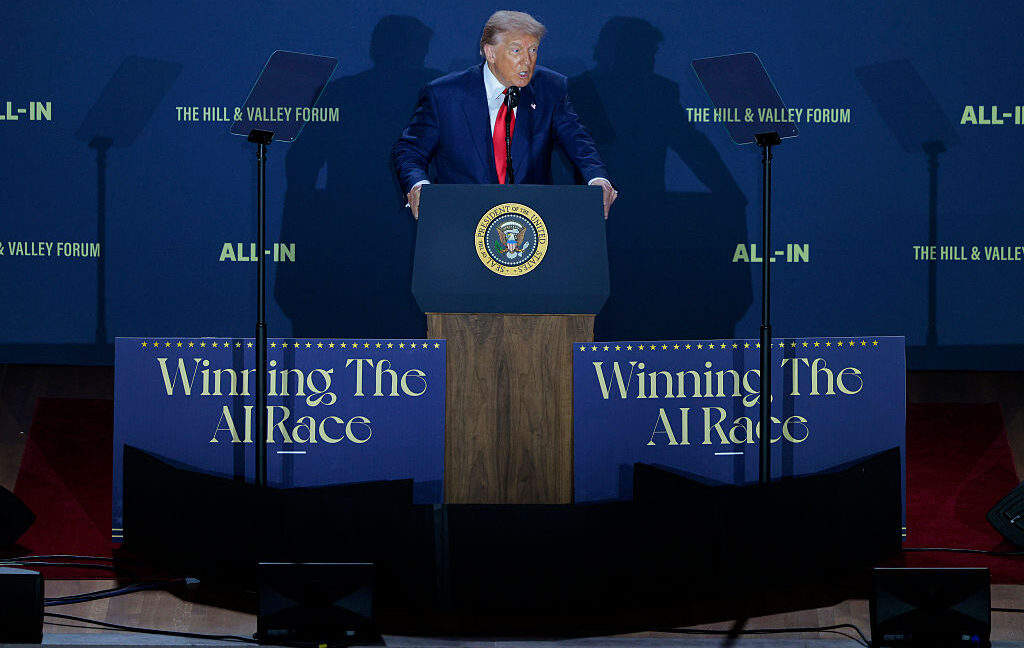
© Chip Somodevilla / Staff | Getty Images News
On Wednesday, the White House released "Winning the Race: America's AI Action Plan," a 25-page document that outlines the Trump administration's strategy to "maintain unquestioned and unchallenged global technological dominance" in AI through deregulation, infrastructure investment, and international partnerships. But critics are already taking aim at the plan, saying it's doing Big Tech a big favor.
Assistant to the President for Science and Technology Michael Kratsios and Special Advisor for AI and Crypto David Sacks crafted the plan, which frames AI development as a race the US must win against global competitors, particularly China.
The document describes AI as the catalyst for "an industrial revolution, an information revolution, and a renaissance—all at once." It calls for removing regulatory barriers that the administration says hamper private sector innovation. The plan explicitly reverses several Biden-era policies, including Executive Order 14110 on AI model safety measures, which President Trump rescinded on his first day in office during his second term.
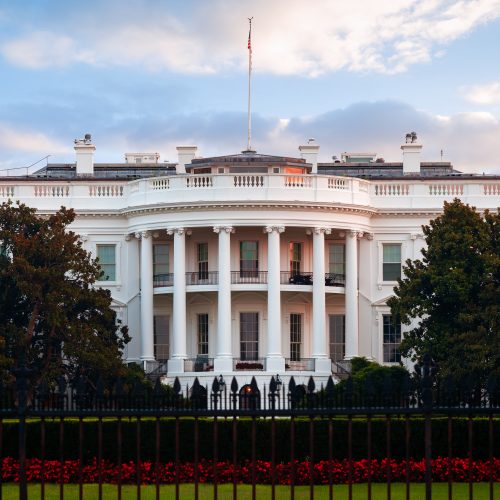
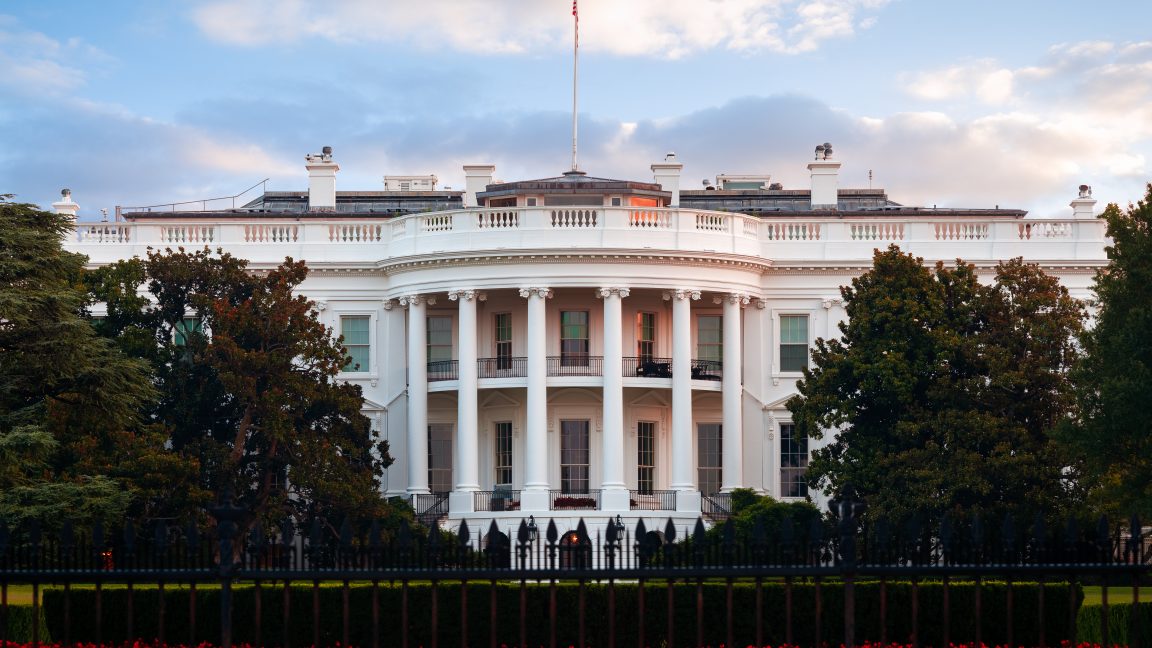
© Joe Daniel Price | Getty Images


